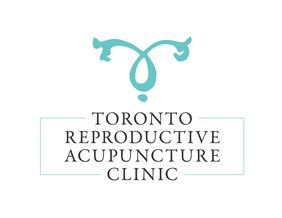|
Uterine (or endometrial) lining thickness is a useful predictor of embryo implantation and pregnancy success. It is measured via ultrasound during cycle monitoring, IUI, IVF, and frozen embryo transfers. A thin lining can halt the entire fertility process, and not seeing any growth in thickness, despite medical efforts, can be really frustrating. The Lining “Norm” Uterine lining thickness varies depending on the phase of your menstrual cycle and hormonal influence. On your period: 2-4mm Follicular phase (before ovulation): 5-7mm Ovulatory phase: 7-11mm Luteal phase (after ovulation): up to 16mm A lining < 8mm is associated with implantation failure, poor receptivity, and low pregnancy rates. The numbers aren’t the only measurement that matters. The endometrial pattern is also relevant; the most receptive lining is called triple-line or tri-laminar (due to its 3 layer appearance). The most common pharmaceutical approach to a thin lining is supplementation with synthetic hormones; conjugated estrogen, progestin, or a combination of both like the oral contraceptive pill. Viagra is also used to increase pelvic blood flow (it ain’t just for men!) Not all women respond to these options, but thankfully there are natural alternatives. Naturopathic medicine can be used in conjunction with hormones or alone to optimize your lining.
When all else fails, remember that lifestyle makes a huge difference! Simple strategies like drinking at least 2L of water daily and moving your body with gravity can increase endometrial thickness. There are natural options to support the growth of your lining, such as supplements, herbs and acupuncture. We offer a free consultation to all new patients. Come and meet with us to discuss options for natural support strategies, to help make this your best cycle yet! Written by Dr Caleigh Sumner ND References:
Jimenez, P. T., Schon, S. B., Odem, R. R., Ratts, V. S., & Jungheim, E. S. (2013). A retrospective cross-sectional study: fresh cycle endometrial thickness is a sensitive predictor of inadequate endometrial thickness in frozen embryo transfer cycles. Reproductive Biology and Endocrinology, 11(1), 35. Zhao, J., Zhang, Q., & Li, Y. (2012). The effect of endometrial thickness and pattern measured by ultrasonography on pregnancy outcomes during IVF-ET cycles. Reproductive Biology and Endocrinology, 10(1), 100. Al-Ghamdi, A., Coskun, S., Al-Hassan, S., Al-Rejjal, R., & Awartani, K. (2008). The correlation between endometrial thickness and outcome of in vitro fertilization and embryo transfer (IVF-ET) outcome. Reproductive Biology and Endocrinology, 6(1), 37. Hashemi, Z., Sharifi, N., Khani, B., Aghadavod, E., & Asemi, Z. (2017). The effects of vitamin E supplementation on endometrial thickness, and gene expression of vascular endothelial growth factor and inflammatory cytokines among women with implantation failure. The Journal of Maternal-Fetal & Neonatal Medicine, 1-8. Takasaki, A., Tamura, H., Miwa, I., Taketani, T., Shimamura, K., & Sugino, N. (2010). Endometrial growth and uterine blood flow: a pilot study for improving endometrial thickness in the patients with a thin endometrium. Fertility and sterility, 93(6), 1851-1858. Nasr, A. (2010). Effect of N-acetyl-cysteine after ovarian drilling in clomiphene citrate-resistant PCOS women: a pilot study. Reproductive biomedicine online, 20(3), 403-409. di Villahermosa, D. I. M., dos Santos, L. G., Nogueira, M. B., Vilarino, F. L., & Barbosa, C. P. (2013). Influence of acupuncture on the outcomes of in vitro fertilisation when embryo implantation has failed: a prospective randomised controlled clinical trial. Acupuncture in Medicine, 31(2), 157-161.
744 Comments
You've made it through the countless appointments, medications, and procedures! Now all there’s left to do is wait, and maybe wait a little more. These two weeks are a time for you to do absolutely nothing: love yourself, hug yourself, and reflect on how you’re stronger than was ever thought humanly possible! I’ve heard from my patients that the hardest part of the 2-week wait is feeling like there is nothing else they can do, which makes the wait that much…crappier. They want to support their body in every way they can and they’re not sure how to do this after the embryo transfer. Luckily there IS something you can do, and that’s optimize diet! There are simple foods you can eat to increase pelvic circulation, build blood, decrease inflammation, and support progesterone. Eat them often and feel confident that you’re supporting your embryo and overall health!
The 2-week wait is all about doing things that support your body and mind and make you feel happy; the hardest part of the IVF process is over. If you can fit in some of these healthy foods too, your embryo will thank you. Written by Dr Caleigh Sumner ND There are natural options to support you during the two week wait such as supplements, herbs and acupuncture. We offer a free consultation to all new patients. Come and meet with us to discuss options for natural support strategies, to help make this your best IVF cycle yet!
|
Copyright © Toronto Reproductive Acupuncture Clinic. All Rights Reserved | Privacy Policy



 RSS Feed
RSS Feed